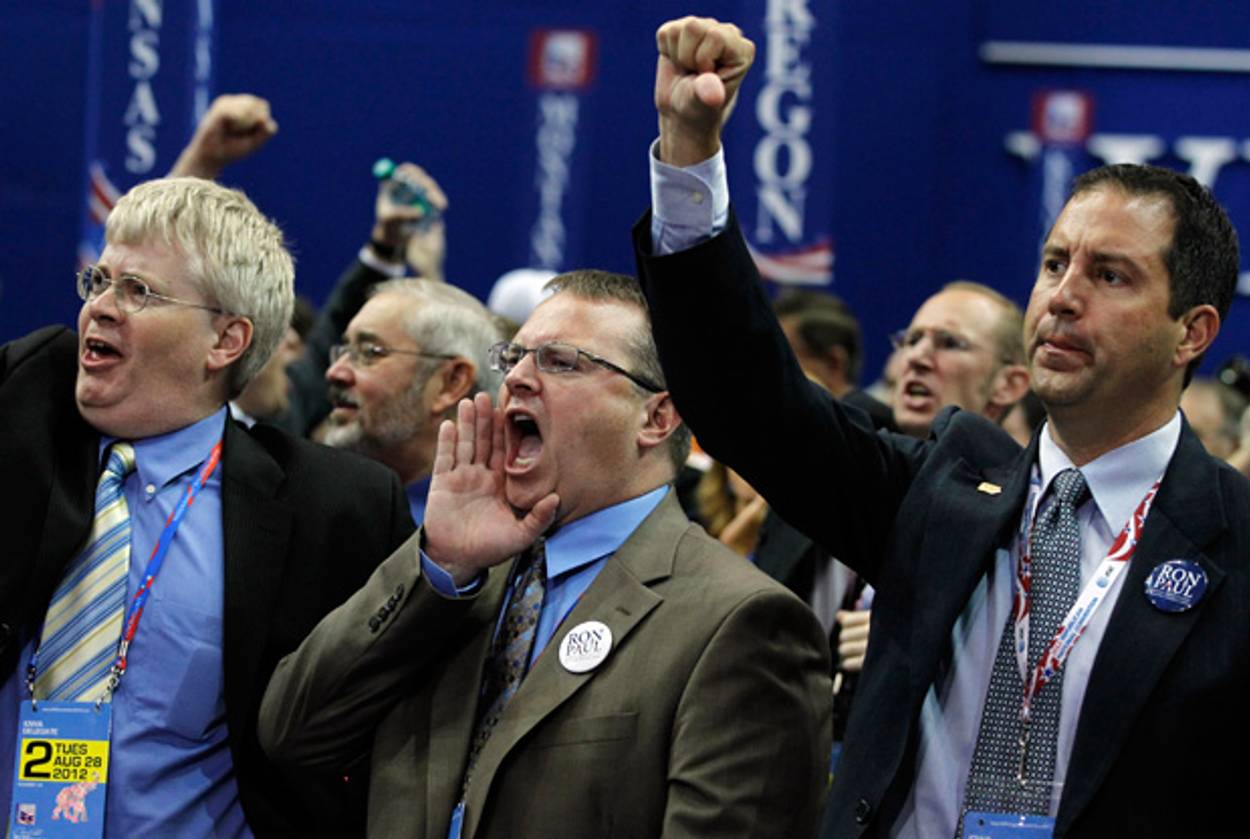The Tea Party’s Enemy No. 1
Benjamin Ginsberg, Bush’s lawyer in the 2000 recount, has orchestrated a major power grab for Romney




For most Republican voters, the point of the Republican National Convention is to focus attention on Mitt Romney, the party’s standard-bearer heading into the November general election. But Tea Party activists and Ron Paul partisans spent the first full day of the affair obsessing over a much less famous figure: a longtime Republican election lawyer named Benjamin Ginsberg.
A veteran of the 2000 Florida recount, as well as of most of the biggest partisan ballot fights before and since, Ginsberg made himself into a target after proposing a series of rules changes last Friday that would give the party committee the ability to amend procedures without the approval of the full convention and would grant the Republican nominee greater control over delegate selection. Both changes aimed at containing the potential for future insurgent candidates, like Paul, to challenge the frontrunner for the party’s nomination.
Late Monday, Romney aides told reporters that a compromise deal had been reached—which only enraged the activists even more. Sarah Palin, the party’s erstwhile 2008 vice-presidential candidate, urged them on via Facebook, calling the proposal “a direct attack on grass-roots activists by the GOP establishment.”
“This attempted coup by the consultants and the national party elite would completely disenfranchise all rank and file Republicans,” wrote Cindy Lake, a longtime Ron Paul supporter who is chairman of the Clark County, Nev., Republican Party, in a press release decrying Ginsberg by name. “The Clark County Republican Party refuses to stand idly by and allow this Marxist style power grab to go unnoticed.”
By Tuesday afternoon, the issue threatened to pitch the convention down a worm hole into the 1992 campaign, when firebrand conservative Pat Buchanan launched a primary challenge to President George H.W. Bush, who at the time had Ginsberg and former New Hampshire Gov. John Sununu working for him. “This year, John Sununu and Ben Ginsberg are with Team Romney,” wrote Erick Erickson, editor of the conservative news site RedState. “The guys who’ve been old hands at this for a long time have gotten it in their heads that these rule changes Team Romney keeps coming up with is payback from Ginsberg and Sununu going back to 1992.”
And yet, Ginsberg, who was photographed crossing paths with Paul on the convention floor just before the full vote, got his way—or, rather, produced the result his client, Romney, had wanted. The rules committee wound up voting 78 to 14 in favor of the new rules, and when House Speaker John Boehner put the changes up for a voice vote late Tuesday, he got a chorus of yeses, and apparently ignored the boos from Paul’s camp.
“Ginsberg is considered the lawyer for the Republican Establishment,” said Rick Hasen, an election-law expert and author of Voting Wars. Viewers at home may remember Ginsberg as the bespectacled character played by Bob Balaban in the 2008 potboiler Recount, opposite Kevin Spacey’s turn as Ron Klain, counsel to the Gore campaign. But he remained a stranger to most rank-and-file Republicans until this week.
Now in his early 60s, Ginsberg cut his political teeth in a vicious 1985 recount over an Indiana congressional seat that prompted a Republican walkout in the House of Representatives. (Ginsberg did not respond Tuesday to an email from Tablet.) He went on to spend eight years as counsel to the central Republican bodies—the National Republican Congressional Committee, the National Republican Senatorial Committee, and finally the National Republican Committee—and was instrumental in orchestrating the party’s redistricting strategy after the 1990 census. In 1993, he joined Patton Boggs, one of Washington’s most powerful lobbying outfits. At the urging of Karl Rove, whom he had met when Rove was consulting for congressional candidates in the 1980s, Ginsberg joined George W. Bush’s campaign in 2000 as national counsel. His last recount fight came in 2008, when he represented former Minnesota Republican Sen. Norm Coleman in his failed effort against the comedian and now sitting Democratic Sen. Al Franken.
Before he was a lawyer, Ginsberg was a journalist. After graduating from the University of Pennsylvania in 1974, where his father, Harold, a specialist in infectious-diseases research, headed the microbiology department, Ginsberg worked for various newspapers, including the Boston Globe, before heading to Georgetown Law—following in the footsteps of his mother, Marion, an immigration lawyer who was briefly a name partner in a firm, a rarity for women in her generation. “She came here as an associate and when they moved back to New York, she was in charge of the New York office of our firm,” said James Orlow, a former colleague in Philadelphia.
Ginsberg’s last brush with notoriety came in 2004, when the New York Times reported that he had given legal advice to the group Swift Boat Veterans for Truth, which targeted Democratic presidential candidate Sen. John Kerry, while he was serving as the Bush re-election campaign’s outside counsel. Ginsberg wound up stepping down from the campaign, saying he did not want to be a “distraction” for the candidate. He joined Romney’s campaign in 2007 and rejoined the governor’s team last summer. “He would not have been Herman Cain’s lawyer,” Hasen said. “Romney is in good hands.”
***
Like this article? Sign up for our Daily Digest to get Tablet Magazine’s new content in your inbox each morning.
Allison Hoffman is a senior editor at Tablet Magazine. Her Twitter feed is @allisont_dc.
Allison Hoffman is a senior editor at Tablet Magazine. Her Twitter feed is @allisont_dc.